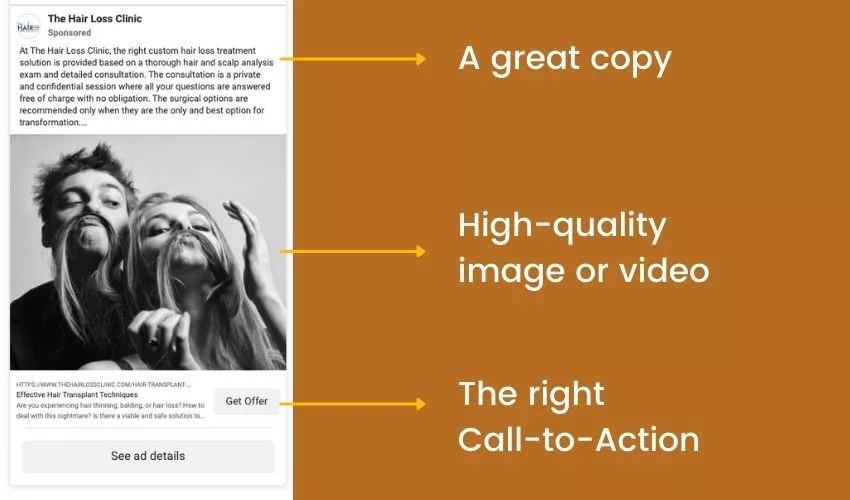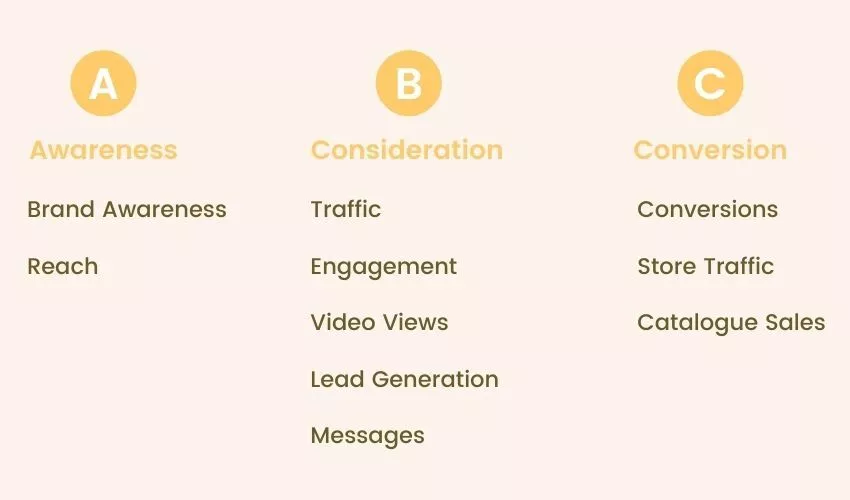Resources / 9 Best Facebook Ads for doctors
In this post, we will discuss how you can leverage Facebook Ads to grow your practice.

Nupur Markam
Published On: June 5, 2021
If you’re a plastic surgeon, dermatologist, dentist, own a medspa, or aesthetic clinic, you may have questions like:
“Should I spend on Facebook ads?”
“Is it going to help me in patient acquisition?”
“Google ads or Facebook ads, what is better?”
In this post, I’ll answer all these questions and discuss how you can leverage Facebook Ads to grow your practice. I’ll also share a strategy that will help you increase conversions and make your online ads successful.
Watch the video: 9 Best Facebook Ads for doctors: What is better Facebook ads or Google ads
When you market on Facebook, you’re reaching out to people who are just browsing through the social platform, entertaining themselves, connecting with their family and friends.
So keeping this at the back of your mind, you need your Facebook ad to be as attractive, and engaging as possible. Your ad should create a visual impact on the audience. It should have an attractive high-quality image or video, a great copy, and the right Call-to-Action.

Example of a Facebook Ad
Over the years, Facebook has evolved as a platform where you can easily generate leads and even have conversions. There’s a great opportunity for you to convert this audience into your prospective patients, by using the right messaging for your Facebook ads.
When you are spending on Facebook Ads, you are basically making an investment. Here are some reasons why you should invest in Facebook Ads:
The #1 essential element of a Facebook Ad is Target Audience.
It is very important to show your ad to the right people. Facebook gives Advanced Targeting options. So with demographic information such as Age, Gender, and Location, you can also target your prospective patients based on their Interests, Behavior, Mobile Devices, Job Titles, and more such information.
Let’s say you have a Hair Growth Clinic in New Jersey and want to run an ad for hair loss treatment for men.
So, your target audience will have demographic information like
Now let us dive into different types of ad campaigns on Facebook that you can use for your medical practice.
Facebook has 3 broad categories of ad campaigns. It allows you to run ads based on your specific goals.

Categories of Facebook ad campaigns
Awareness campaigns are great if you want to create interest in your brand, product, or services. Creating brand awareness is about telling people what makes your practice valuable.
Let’s say you have a new Laser hair Removal treatment where you are using the latest technology. You can create a Brand Awareness campaign that highlights this latest technology and the advantages of the treatment to people in the local area.
You can also show your ad to as many people as possible in your target audience by using the Reach campaign.
Campaigns that get people to think about your practice and seek more information fall under the Consideration category.
You can run different types of ads under this category
You can also run a Messages campaign and connect directly with people on Messenger, Instagram Direct, and WhatsApp. This will help you to connect with your potential or existing patients to create interest in your practice or the services you provide.
Conversions campaigns encourage people interested in your practice to buy or use your product or service.
Let’s say you’ve moved your clinic to a new location. You can run a Store Traffic campaign and show your ad to people who are near your clinic and make them take a specific action on your clinic’s site, such as make a product purchase or book an appointment.
Another type of campaign that you can use is Catalogue Sales. With the help of this campaign, you can show your products from your website store’s catalogue to generate sales.
If you want to create your brand and drive conversions then optimizing your marketing spend across the right mix of channels i.e. across Google and Facebook will give you great results!
To know how you need to first understand how these ads work.
Facebook shows your ads to people based on their Interest graph, it knows what people like, where they visit, what dishes they cook, what movies they watch, and more such information. Therefore, you should carefully target your audience based on their interests and demographics while creating Facebook campaigns.
Let’s say a person is looking for a solution to straighten his teeth. He may come across a Facebook Ad for straightening teeth via Clear Aligners and this may prompt him to click on the Ad and find out more information about the treatment.
On the other hand, Google uses a Knowledge graph. This is based on what people are searching on Google.
For example, if a person is suffering from a severe toothache then he will search for a dental clinic that can take care of emergency cases like these on Google instead of scrolling on Facebook.
So, if you handle emergency cases, you can show relevant search ads to your prospective patients that match exactly what they are searching for on Google.
Once you understand Facebook and Google platforms well, you will be able to figure out how to optimize your spend across these platforms.
The strategy that will help you increase conversions and make your ad more successful is Remarketing.
Remarketing is a way of connecting with people who have previously interacted with your website. For this, you need to set up Facebook Pixel on your website.
Let’s say, someone searches a query on Google and visits your website to look for more information. You can remarket this person by strategically positioning your Facebook ads as they browse on the social platform. Thus helping you increase your brand awareness or remind those audiences to take some action, be it booking an appointment or making a purchase.
These were some tips on how you can leverage Facebook ads to grow your medical practice.

Chapters of the eBook:
Get step-by-step instructions & insights about what works (and what does not) on social media.
In this blog, we have showcased the types of videos you can post on your Instagram, and the best practices for every type.
In this blog, we talk about Google Search Console, what it is and how it can help you optimize your website for better visibility in search engine results.